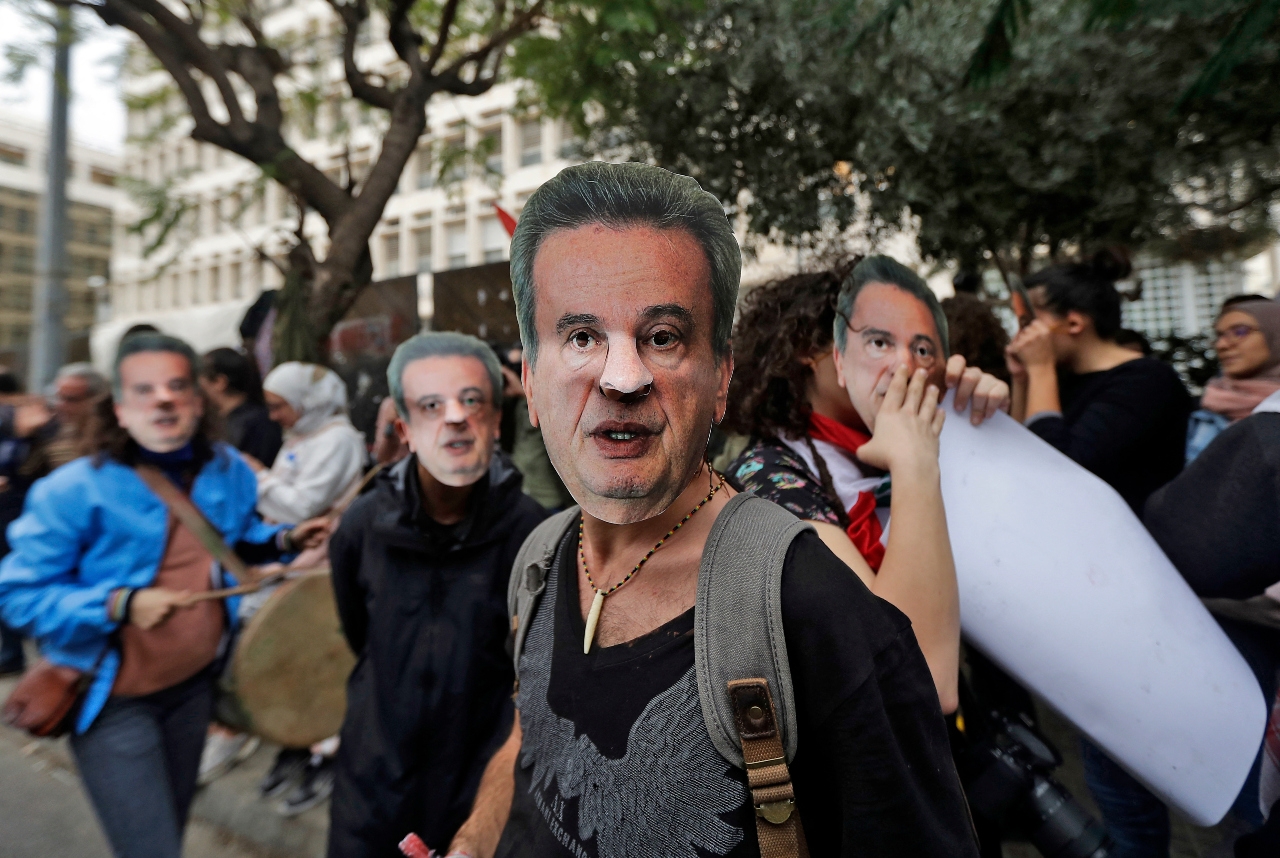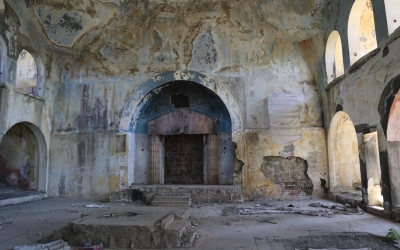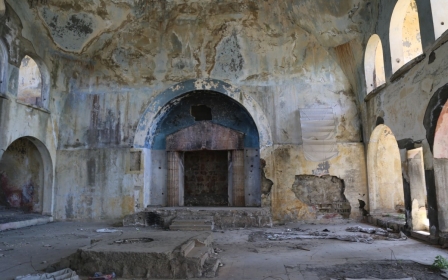Lebanon: US reportedly considering sanctions against central bank chief

The US is considering sanctions against Lebanon’s long-serving central bank chief, Riad Salameh, as a broader investigation into the alleged embezzlement of public funds in the country gathers pace, according to a US news agency.
Officials in the Biden administration have discussed the possibility of coordinated measures with their European counterparts to target Salameh, four sources told Bloomberg News, requesting anonymity because the talks were private.
However, a US State Department spokesperson denied on Friday that Washington was considering sanctions against Salameh.
"We have seen reports about possible sanctions on Riad Salameh. They are untrue," the spokesperson told Reuters.
Debate has so far focused on the possibility of freezing Salameh’s foreign assets and enacting measures that would curtail his ability to do business abroad, the sources said.
New MEE newsletter: Jerusalem Dispatch
Sign up to get the latest insights and analysis on Israel-Palestine, alongside Turkey Unpacked and other MEE newsletters
Talk are ongoing and a final decision over whether to take action may not be imminent, Bloomberg said on Thursday.
Salameh's role came under scrutiny after the country's financial system collapsed in 2019, leading to a crash in the Lebanese pound and a sovereign default.
The 70-year-old, who has led Lebanon’s monetary authority for 28 years, denies any wrongdoing.
The possibility of sanctions against Salameh emerged as recently as last year, but then-President Donald Trump was not interested in taking action, two of the sources said.
'Utterly untrue' allegations
In January, the Swiss attorney general’s office asked the Lebanese government for help with a probe into money laundering linked to possible embezzlement from the coffers of Banque du Liban (BDL), as the country's central bank is known.
Swiss authorities did not say whether Salameh was a suspect, but the Lebanese judiciary said it had been approached about transfers abroad made via the central bank.
Several jurisdictions, including the UK and France, are reviewing Salameh’s links to properties, shell companies and overseas bank transfers
The investigation involves other jurisdictions, including the UK and France, where authorities are reviewing Salameh’s links to properties, shell companies and overseas bank transfers, the four sources told Bloomberg. They also said that while the Swiss probe lends momentum, potential US sanctions do not necessarily depend on its outcome as much as on shifting political calculations.
Salameh dismissed the allegations made against himself and the central bank.
“It is utterly untrue that I have benefited in any way or form, directly or indirectly, from any funds or assets belonging to BDL or any other public funds,” he wrote in an emailed response on Thursday to questions from Bloomberg News.
Salameh said his net worth was $23m when he took on the role of governor in 1993, a fortune amassed during his previous career as a private banker.
His salary at Merrill Lynch was $165,000 a month, he said.
“The source of my wealth is clearly identified,” he wrote in the email.
His brother's role
Swiss authorities are looking into allegations that Salameh indirectly benefited from the sale of Lebanese Eurobonds held in the central bank’s portfolio between 2002 and 2016, according to a Lebanese judicial official and a person familiar with the Swiss investigation, Bloomberg said, both of whom requested anonymity.
The monetary authority holds Eurobonds from market-to-market transactions as well as swap agreements with the government. BDL would cancel Treasury bills and receive the bonds in return.
Also of interest to authorities is the relationship between Salameh's brother, Raja, and the brokerage firm Forry Associates, which charged commissions on the sale of Eurobonds to investors, the sources said.
The commissions under scrutiny total more than $300m, according to a source familiar with the Swiss investigation.
Bloomberg said Raja Salameh did not immediately issue a response when contacted via Solidere, a property company where he’s a board member.
The Hezbollah factor
Under Trump, the US sanctioned several Lebanese officials for supporting Lebanon's Iran-backed Hezbollah movement.
Any action against Salameh would be more sensitive, however, given the push by the Biden administration and European allies to reach a diplomatic accord with Iran over its nuclear deal, as well as efforts to end a political crisis that has left Lebanon without a government for almost seven months.
Potential measures against officials who have helped in the fight against Hezbollah have received a frosty reception from some of Washington’s allies, four of the sources said. Salameh, in particular, forged close relationships with US and European officials as they sought to limit Hezbollah’s footprint in Lebanon's financial sector.
Middle East Eye delivers independent and unrivalled coverage and analysis of the Middle East, North Africa and beyond. To learn more about republishing this content and the associated fees, please fill out this form. More about MEE can be found here.






